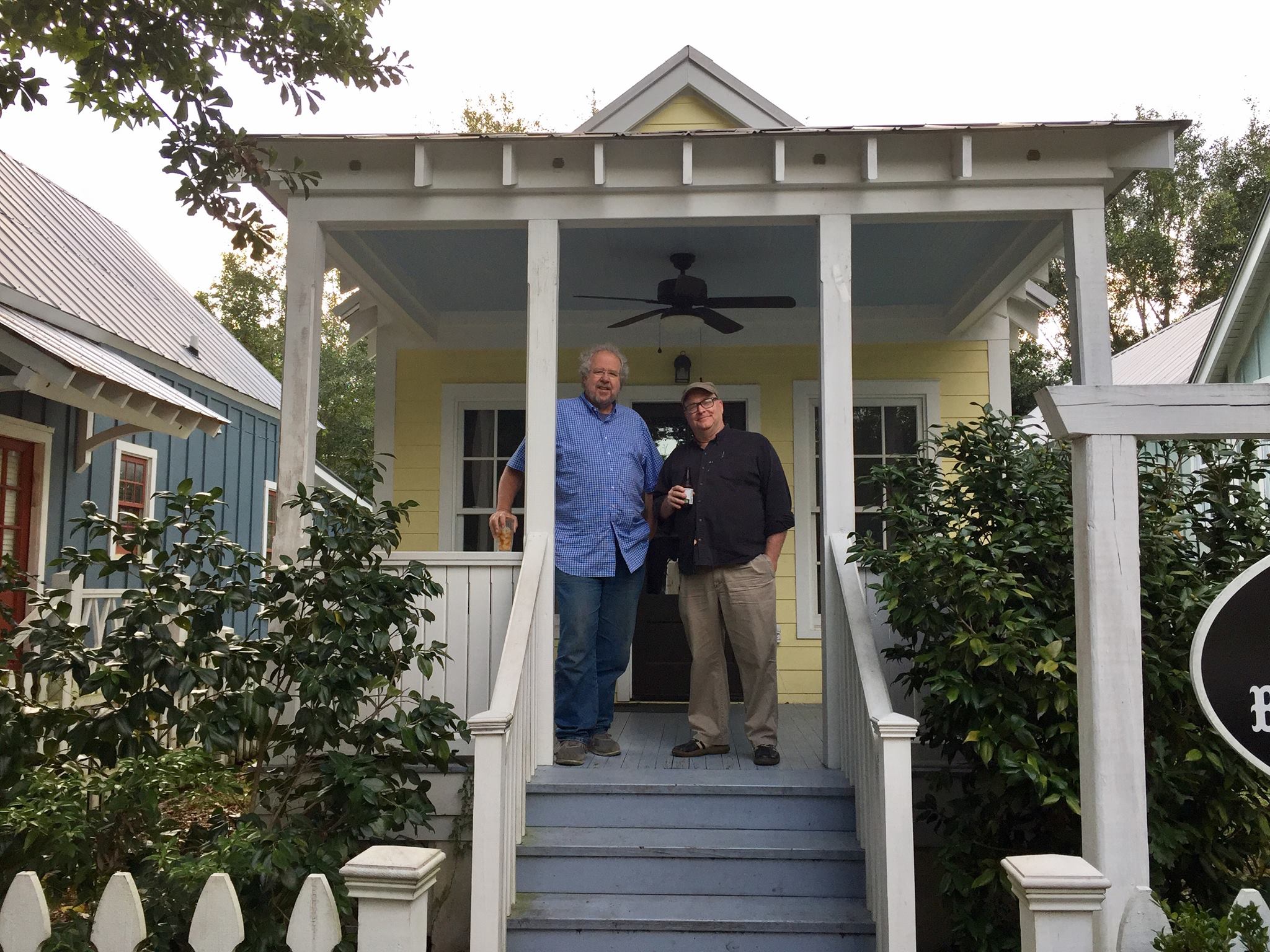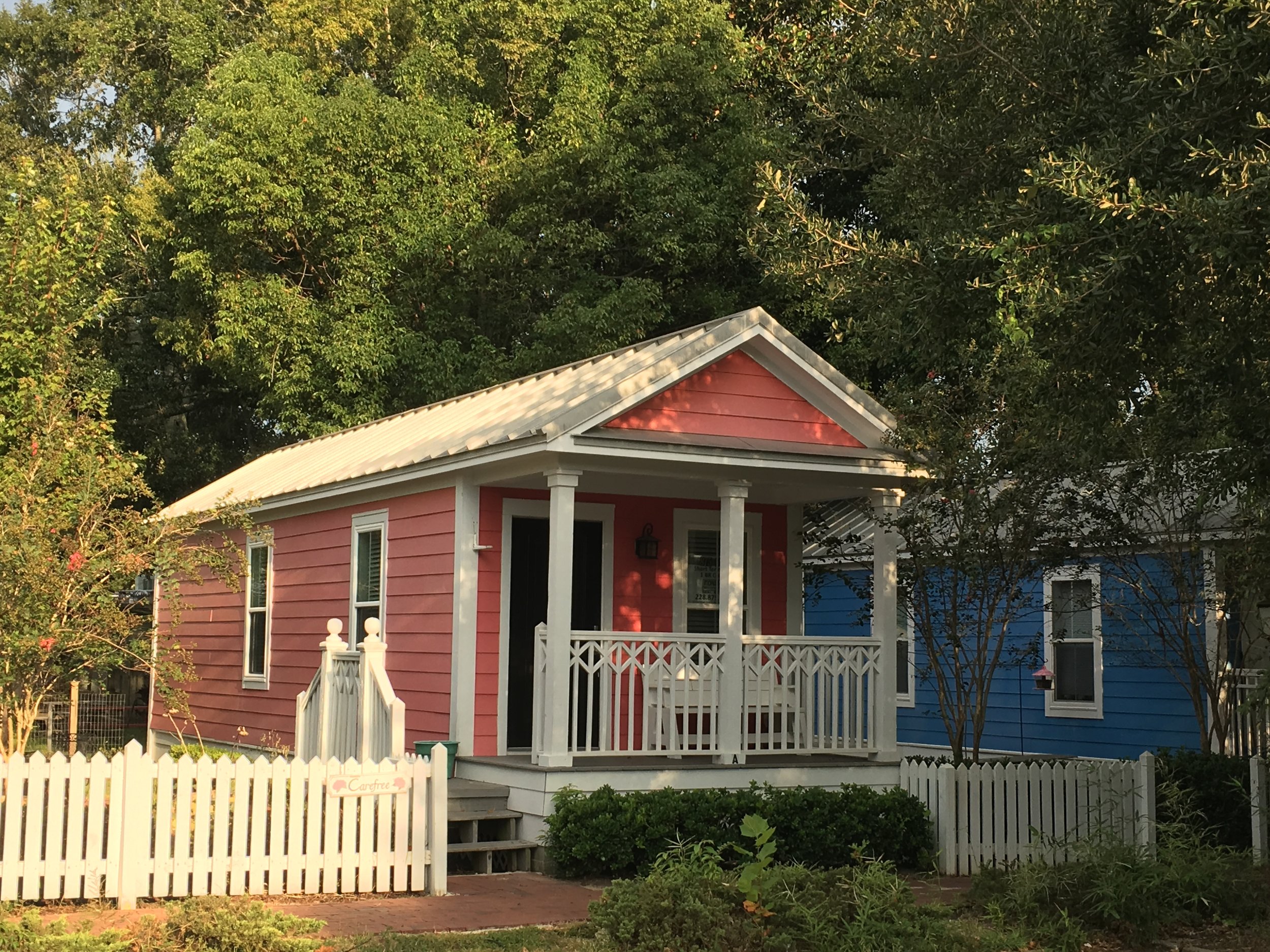Sorting out Mobile Homes, Modular Homes and the rest of the Systems-Built Offerings
 We (David Kim, Bruce Tolar, Will Burgin and I) are currently working on a wide range of tools for delivering walkable neighborhoods and incremental development. After Hurricane Katrina, Bruce and a host of others put in thousands of volunteer hours producing an alternative to the awful FEMA travel trailer that came to be called the Katrina Cottages. The State of Mississippi's Emergency Management Agency (MEMA) commissioned several thousand MEMA cottages of various sizes that were used as part of the hurricane recovery effort and eventually were sold for permanent housing.
We (David Kim, Bruce Tolar, Will Burgin and I) are currently working on a wide range of tools for delivering walkable neighborhoods and incremental development. After Hurricane Katrina, Bruce and a host of others put in thousands of volunteer hours producing an alternative to the awful FEMA travel trailer that came to be called the Katrina Cottages. The State of Mississippi's Emergency Management Agency (MEMA) commissioned several thousand MEMA cottages of various sizes that were used as part of the hurricane recovery effort and eventually were sold for permanent housing.
Bruce Tolar has continued to advocate, design and build cottage housing and cottage neighborhoods over the 12 years since the hurricane. He lives in Cottage Square neighborhood in Ocean Springs, MS. He built a place contains a number of the early prototype cottages designed by colleagues in addition to his own excellent work. As our development company started building a project in Thomasville, Georgia we started looking for manufacturers to produce cottage designs in addition to their usual mobile homes and modular houses. We continue to find a lot of confusion that comes from not having a workable common vocabulary to talk about the range of housing that is partially or entirely built off-site in a factory.
For example; capital "M" Manufactured Homes (mobile homes) are produced to meet HUD certification that allows for their use anywhere in the US. You can easily find yourself in a conversation where industry insiders are using "Manufactured Homes" as a term of art referring to mobile homes and lay people are using lower case "m" manufactured homes to describe anything that comes out of a factory regardless of the code or certification it complies with. In a spoken conversation you cannot hear the capitalization of the word and this leads to needless confusion.
Site building can be quite economical and flexible if you have a good team of local trades and you are well organized. But that level of delivery does not come with a one-off project. You can also build economically if you are competent enough to self-build.
Things get complicated when skilled construction labor is in short supply as it will be for the next 10 years. Short supplies of skilled construction labor get compounded by the needs of disaster response and recovery within a region. For example, a lot of drywall outfits from Atlanta are now down in the Houston area after Hurricane Harvey, so finding someone to install drywall in Atlanta is a problem.
We need to train folks in the trades for all forms of building across the board.
In additions to training people for site built construction and incremental development, we need to be able to use all manner of systems built housing, depending upon what the right tool for job might be:
- ANSI spec Tiny Houses.
- ANSI Spec Park Models.
- HUD spec mobile homes. (also know as capital "M" Manufactured Homes)
- IRC spec modular buildings in single box and multiple box configurations.
- IRC spec wet core modules with site built additions.
- IRC Spec Panelized Construction.
- IRC Spec SIPS construction.
The MEMA Cottages produced after Katrina were dual certified as IRC off-frame modular Homes and on frame HUD Spec Mobile Homes. They could be placed temporarily as HUD spec mobile homes. Once you removed them from their trailer chassis they could be placed upon permenant foundations as IRC spec Modular homes that comply with the standard local building code, while being inspected by third party engineering outfits at the factory.
Below is a 12' wide MEMA Cottage w/ 8' ceilings (one bedroom). This cottage had its porch tuned up a bit and got repainted when it was taken off the trailer frame and set on a permanent foundation in Ocean Springs.

